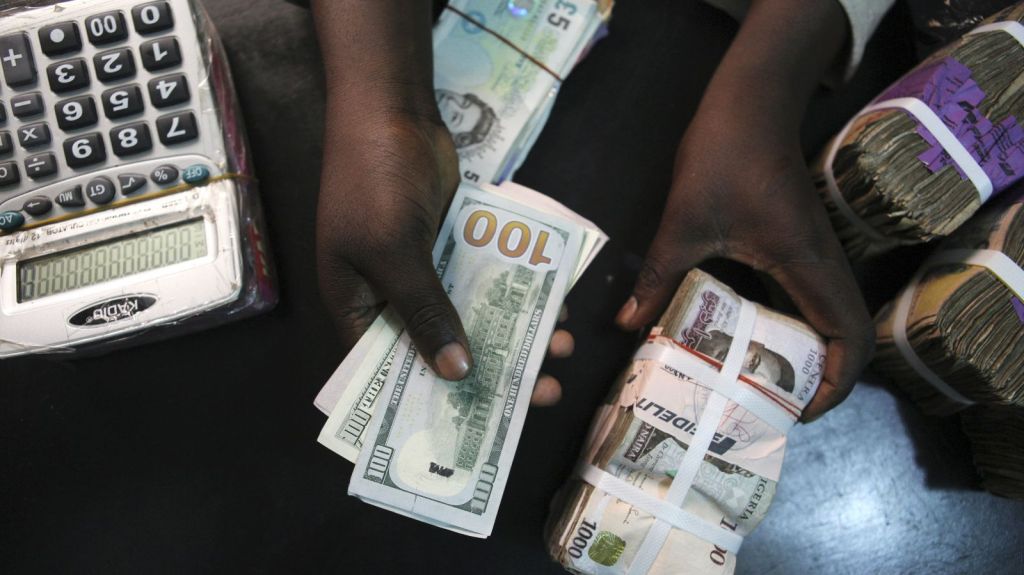Nigerians who travelled overseas for medical treatment and students abroad have called on the Central Bank of Nigeria (CBN) to reverse its latest guidelines barring remittance of foreign exchange through the use of Form A.
About 45 patients in India, who have been caught up by the new policy that came into effect last Friday, said “the policy constitutes a threat to our existence, as the hospital authorities will discontinue with their treatment.”
According to them, the new policy has increased their burden to settle their outstanding bills, while the hospital managements are reluctant to continue with their treatment without assurance of settling the cost of treatment due to the policy.
One of them said: “It is inhuman for CBN to expect us to source foreign exchange through the parallel market and even when you have the foreign exchange, you cannot remit it to the end user.”
Among those affected are also students in different disciplines, who are equally confused over how to source funds to continue their education.
At a meeting held in Bangalore, Southern India, recently, one of the affected patients, Mr. Hugo Odiogor, said the decision of the CBN is harsh, as they could no longer get remittances from their banks in Nigeria, while the cost of sourcing foreign exchange from the parallel market is outrageous, especially with the exchange rate of about N390 to one dollar.
Odiogor, a journalist, who had a spine decompression surgery last month, said he was already planning his return to Nigeria after the successful operation, before the new policy caught up with him.
Odiogor said his visa expired on February 17 while he was waiting for funds to settle his outstanding bills, noting that he now has to cope with the new burden, too.
He said: “We have met with the management of the hospital over our plight, but no decision has been taken.”
According to him, there are several other patients in Chennai and New Delhi, among others, that might have been affected.
Mr. Olu Bolajoko, who brought his wife for a cyber surgery, said he was unhappy with the situation, as he was running out of funds for drugs and other consumables relating to the treatment.
The Guardian gathered that another Nigerian journalist with the Nigeria Television Authority (NTA), who also travelled to India to receive medical treatment, died last Saturday, but sourcing for foreign exchange delayed the arrival of her body back to Nigeria till yesterday.
The first sign of danger had come in January 2016 when payment with the Automated Teller Machine (ATM) system was stopped by the CBN.
Mr. Simon Ostia, a student in India, said the attempt to use other money transfer mechanisms have also failed, as the banks have restricted the payment to $45.
He called for a reversal or modification of the policy to accommodate some pressing needs of Nigerian patients and students abroad.
But in a swift response yesterday, the CBN said it has not stopped the allocation and sale of foreign exchange for school fees abroad and medical tourism.
In a statement signed by the Director of Corporate Communications, Ibrahim Mu’azu, CBN urged members of the public to disregard any contrary information in respect thereof.
“Despite assurances from the CBN, some persons have continued to suggest that the bank had stopped the allocation of foreign exchange to Nigerians seeking to pay school fees and medical bills overseas.”
“All genuine users desiring to obtain foreign exchange for the above-mentioned purposes are hereby urged to freely approach their banks with their requests and appropriate documentation,” he said.
Meanwhile, a Professor of Business (Finance and Economics), Prof. Abiola Awosika-Fapetu, has said that until Nigeria’s foreign reserves improve, Nigerians would continue to languish in the present situation.
Speaking with The Guardian in a telephone interview, Awosika-Fapetu, who is the Rector of Olawoyin Awosika School of Innovative Studies, noted that government’s restriction of foreign exchange was in order as long as it is being deployed to productive sectors of the economy like manufacturing.
She said: “The issue of foreign exchange is about the reserve you have in the bank and if your account is already heading to red, what do you do? You stop withdrawing from that account.”
“It is rather unfortunate that students are out there and people are going out for medical reasons, but this is where we have found ourselves as a nation. You cannot spend the money that you don’t have. If we don’t begin to export so that we can put money in that foreign reserve so that our citizens can withdraw from it when they need it, then we are going to continue to languish at where we have found ourselves.”
“I am sure that even as the CBN has put foreign exchange restrictions on students, medicals and some manufactured products, there is still availability of foreign exchange for manufacturing equipment or industrial development. This is how it is supposed to be.”
While urging government to make funding available to industries that can employ as many people as possible and assist them to grow, Awosika-Fapetu advised Nigerians to adopt import substitution consumption alternatives in order to strengthen the economy.
The Guardian

